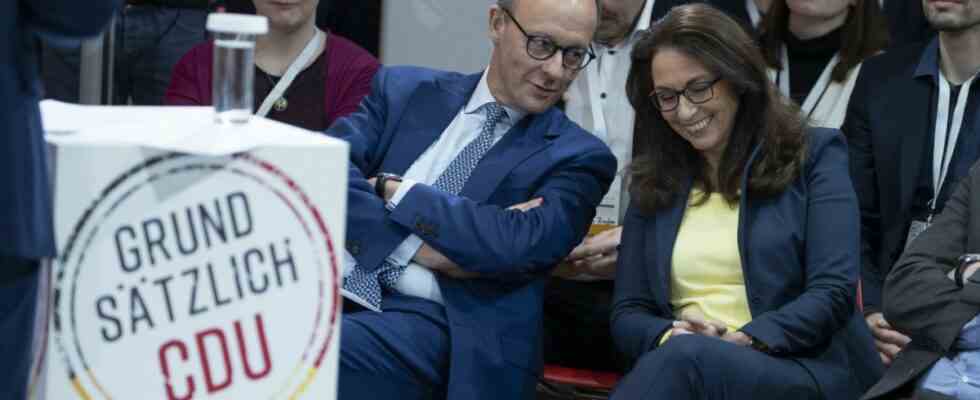You can say a lot about Yasmin Fahimi – but not that she has been noticed by her proximity to the CDU. The chairwoman of the German Trade Union Confederation was SPD general secretary, and attacks on political competition are part of the job description. And even in the Bundestag, Fahimi did not spare the CDU. A few days before the last federal election, she accused the Union of always having put on the brakes during the entire legislative period when it was “about fair wages, good working conditions and adequate pensions”. This type of politics should be voted out.
But now Fahimi of all people is sitting as a guest in the CDU headquarters. The Union invited works councils to a conference on Wednesday. The party of the former Blackrock man Friedrich Merz now knows that it has weaknesses in social and labor market policy that it must address. That’s why she asked the DGB boss to her headquarters – a new situation for both sides. It is therefore no wonder that Fahimi answered the initial question as to whether she could have imagined sitting at such an event in the CDU headquarters earlier with a brief “of course not”.
But before Fahimi is allowed on stage, Merz speaks first. And is comparatively moderate. The CDU leader complains about the high energy prices in Germany, which pose a threat to companies. He therefore demands energy “from all available sources”. He warns of de-industrialization. “The shortage of skilled workers is likely to be one of the biggest brakes on growth in the next few years,” says Merz. “We are in favor of further immigration, but we want to enable this controlled and regulated immigration into the labor market, and we don’t want it to continue uncontrolled and unregulated in the social systems.”
Merz praises the works councils
Above all, however, the CDU leader praises the staff and works councils. They knew what was going on in the factories. Merz believes that employee representatives are needed for social partnership in companies. Germany would not have gotten through the pandemic so well “if we hadn’t had such responsible works councils”. Wherever works councils are strong, they would help the company.
That sets the tone. When Fahimi comes on stage, she refrains from the harsh criticism of the CDU that was used to come from her. The energy costs, the inadequate infrastructure and the lack of skilled workers are also issues that drive her, says the DGB boss. And the co-determination of the employees in the company is actually not only a social and democratic question, but also a question of reason.
But Fahimi makes one thing clear: that her trust in the common sense of entrepreneurs is significantly lower than that of Merz. When it came to digitization, the company “slept through a lot,” says the DGB boss. This is especially true for medium-sized companies. And some business models would only have been based on the fact that you can take advantage of cheap labor, for example in the meat industry or in delivery services. The debates about co-determination and collective agreements are therefore not about union power, but about society not falling apart.

